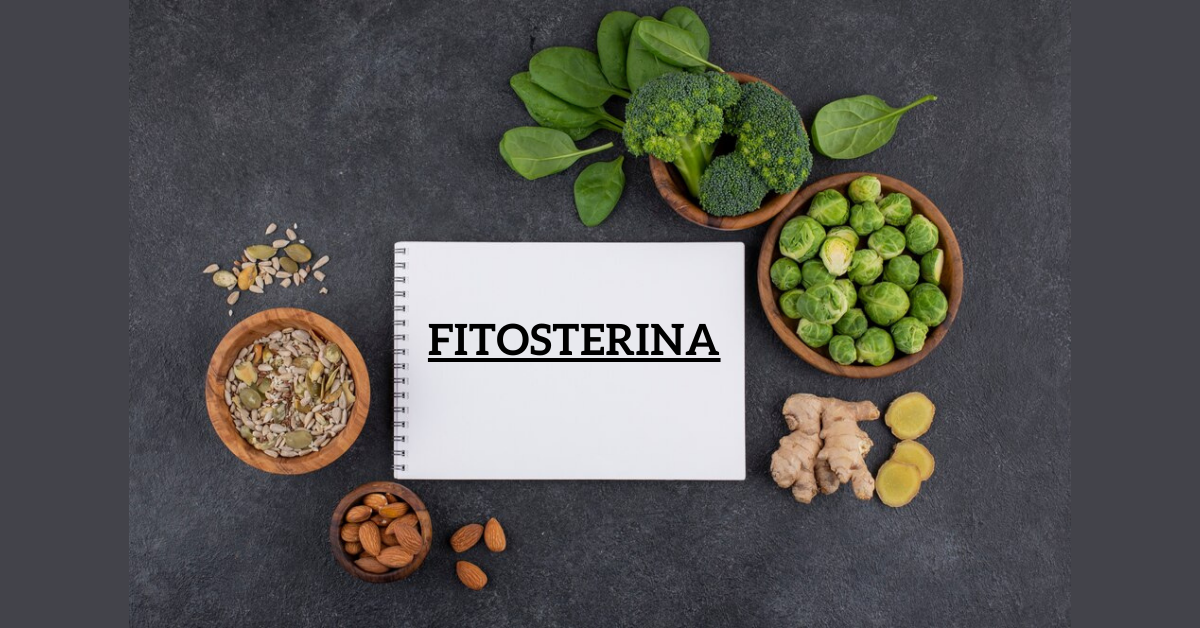Introduction: Fitosterina
In recent years, there has been growing interest in natural compounds that promote health and well-being. Among these, phytosterols, also known as “fitosterina” in various languages, have garnered significant attention. Phytosterols are plant-derived sterols that resemble cholesterol in structure but offer a range of health benefits.
This article aims to provide an in-depth understanding of fitosterina, its sources, health benefits, mechanisms of action, and practical applications. Our goal is to offer a comprehensive guide that surpasses existing online sources and ranks highly in search engine results, ensuring valuable information for our readers in the USA.
What is Fitosterina?
Definition and Structure
Fitosterina, or phytosterols, are naturally occurring compounds found in the cell membranes of plants. Chemically, they are similar to cholesterol but differ in the side chains attached to the sterol nucleus. The most common phytosterols are beta-sitosterol, campesterol, and stigmasterol.
Sources of Fitosterina
Phytosterols are abundant in various plant-based foods, including:
- Nuts and Seeds: Almonds, walnuts, sunflower seeds, and sesame seeds.
- Vegetable Oils: Olive oil, canola oil, corn oil, and sunflower oil.
- Legumes: Beans, lentils, and peas.
- Whole Grains: Wheat germ, rye, and barley.
- Fruits and Vegetables: Avocados, carrots, and broccoli.
Fitosterina in Supplements
Due to their health benefits, phytosterols are also available as dietary supplements. These supplements often contain concentrated forms of phytosterols, making it easier to achieve the recommended daily intake.
Health Benefits of Fitosterina
Cholesterol-Lowering Effects
Mechanism of Action
Phytosterols are known for their ability to lower LDL (low-density lipoprotein) cholesterol levels. They achieve this by competing with dietary cholesterol for absorption in the intestines. As a result, less cholesterol is absorbed, and more is excreted from the body.
Clinical Evidence
Numerous studies have demonstrated the cholesterol-lowering effects of phytosterols. For instance, a meta-analysis of over 40 clinical trials found that consuming 2 grams of phytosterols per day can reduce LDL cholesterol by approximately 10%.
Anti-Inflammatory Properties
Phytosterols have been shown to possess anti-inflammatory properties, which can be beneficial in managing chronic inflammatory conditions such as arthritis and inflammatory bowel disease.
Mechanism of Action
Phytosterols inhibit the production of pro-inflammatory cytokines and modulate the activity of immune cells, thereby reducing inflammation.
Clinical Evidence
Research indicates that phytosterol supplementation can reduce markers of inflammation, such as C-reactive protein (CRP), in individuals with inflammatory conditions.
Antioxidant Activity
Phytosterols exhibit antioxidant properties, helping to neutralize free radicals and protect cells from oxidative damage.
Mechanism of Action
Phytosterols enhance the activity of antioxidant enzymes and scavenge free radicals, preventing oxidative stress.
Clinical Evidence
Studies have shown that phytosterol consumption can increase antioxidant enzyme activity and reduce oxidative stress markers in the body.
Potential Anti-Cancer Effects
Emerging evidence suggests that phytosterols may have anti-cancer properties, particularly in reducing the risk of certain types of cancer, such as breast, prostate, and colon cancer.
Mechanism of Action
Phytosterols can induce apoptosis (programmed cell death) in cancer cells, inhibit cell proliferation, and modulate signaling pathways involved in cancer development.
Clinical Evidence
Epidemiological studies have found an inverse relationship between phytosterol intake and the risk of certain cancers. However, more research is needed to confirm these findings.
Practical Applications of Fitosterina
Dietary Recommendations
Incorporating phytosterol-rich foods into your diet can help you reap their health benefits. Here are some practical tips:
- Breakfast: Add nuts and seeds to your morning cereal or yogurt.
- Lunch: Use vegetable oils like olive or sunflower oil in your salads.
- Snacks: Enjoy a handful of almonds or a slice of avocado.
- Dinner: Include legumes like beans or lentils in your meals.
Phytosterol-Enriched Products
Food manufacturers have developed phytosterol-enriched products, such as margarine, orange juice, and dairy alternatives, to help consumers increase their phytosterol intake. These products are designed to provide the recommended daily intake of phytosterols conveniently.
Phytosterol Supplements
Phytosterol supplements are available in various forms, including capsules, tablets, and powders. When choosing a supplement, look for those that provide at least 2 grams of phytosterols per day, as this is the amount shown to effectively lower LDL cholesterol.
Safety and Side Effects
General Safety
Phytosterols are generally considered safe for most people when consumed in amounts typically found in foods. However, it is important to follow the recommended dosage if taking supplements.
Potential Side Effects
Some individuals may experience mild side effects, such as gastrointestinal discomfort, when consuming high doses of phytosterols. If you experience any adverse effects, reduce your intake and consult a healthcare professional.
Special Considerations
People with sitosterolemia, a rare genetic disorder that causes excessive absorption of phytosterols, should avoid phytosterol supplements and phytosterol-enriched foods.
Conclusion
Fitosterina, or phytosterols, are powerful natural compounds with a range of health benefits, particularly in lowering LDL cholesterol and reducing inflammation. By incorporating phytosterol-rich foods into your diet or using phytosterol supplements, you can improve your cardiovascular health and potentially reduce the risk of certain cancers. As with any dietary change or supplement, it is important to consult with a healthcare professional to ensure it is appropriate for your individual needs.



